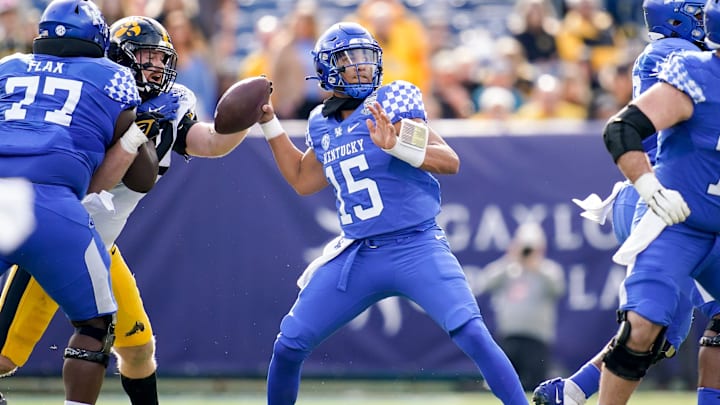College football fans eagerly await preseason rankings every summer, as they provide a roadmap for debates and excitement heading into the season. Yet, those rankings often create a problematic narrative that impacts teams unfairly, particularly those outside traditional power conferences, and sometimes within them. Eliminating preseason and early-season rankings until Week 5 could lead to a more equitable and thrilling college football landscape.
GET RID OF PRESEASON RANKINGS…they do nothing but create disadvantages for unranked teams that were only unranked because of subjective opinions before anyone watched a down of football. #CFBPlayoff
— Cory Landes (@cory_landes) December 4, 2024
Preseason rankings are inherently based on speculation rather than on-field performance. Historically, teams like Boise State in 2007 and UCF in 2017 have showcased how flawed this system can be. Boise State, despite finishing undefeated and ranked No. 7, was excluded from championship contention, even after defeating No. 7 Oklahoma in a now-iconic Fiesta Bowl. Similarly, UCF finished the 2017 season undefeated but never had a realistic shot at the College Football Playoff, largely because they began the season outside the top 25.
The new 12-team playoff format offers a partial solution by expanding access, but the issue remains for teams that start unranked. Climbing into playoff contention is significantly harder for a program like SMU or Tulane compared to perennial powerhouses such as Georgia or Alabama, which often benefit from inflated preseason rankings. This discrepancy stems from a system that favors historical reputation over current performance.
College football's current ranking system not only disadvantages programs outside the Power Five conferences but also perpetuates inequalities among teams within those conferences. Programs like Kentucky football, which often enter seasons with modest national expectations, face a significant uphill battle.
You know what would help college football???
— Francisco Rios (@cisco0602) December 8, 2024
STOP. DOING. PRESEASON. RANKINGS.
9/10 they get it wrong and put teams in that have no business being there and teams that should, have a harder time climbing up.
I've always felt they should wait until after week 4 to rank schools.
They must string together multiple high-profile wins just to crack the top 25, and one midseason loss can erase that momentum entirely. In contrast, programs like Alabama or Ohio State, starting near the top due to preseason rankings, can absorb an early or midseason loss and remain securely within the top 15.
For instance, if Kentucky began the season unranked but upset teams like Florida or Tennessee to enter the rankings, a subsequent loss to a strong opponent could drop them out of contention entirely. Meanwhile, a perennial powerhouse like Alabama could lose a similar game and still maintain a comfortable position in the rankings, keeping their playoff hopes intact.
This disparity stems from the inertia created by preseason rankings, where the benefit of the doubt is granted to established programs and withheld from teams trying to break through.
A better approach would delay all rankings—AP, Coaches Poll, and College Football Playoff Committee standings—until Week 5. This timeline allows voters to evaluate teams based on merit rather than expectation. It also incentivizes marquee non-conference matchups early in the season. For example, a team that defeats Oregon and USC in Weeks 1 and 2 would naturally earn more respect than a program starting with games against lower-tier opponents.
“If we evaluated college football teams AFTER they played games, the rankings would look drastically different.”@JoelKlatt breaks down why preseason rankings are not beneficial to college football 👀⬇️ pic.twitter.com/kl4UcnyQAD
— FOX College Football (@CFBONFOX) October 2, 2019
It also gives the voters real data to look at. They don't have any pressure dropping an underperforming Alabama team out of the top 25 when they started at number 1. They simply would just not be ranked at that moment.
The trade-off is a reduction in preseason chatter, but the long-term benefit outweighs this drawback. A Week 5 release of rankings would provide compelling television content, showcasing how teams have earned their positions on the field. It also mitigates the inertia that allows certain teams to remain ranked, even after disappointing performances.
Ultimately, removing preseason rankings and shifting the focus to on-field results aligns with the spirit of competition and fairness. It would ensure every team, regardless of reputation, gets a fair shake in the playoff era, making college football better for players, fans, and the sport itself.
